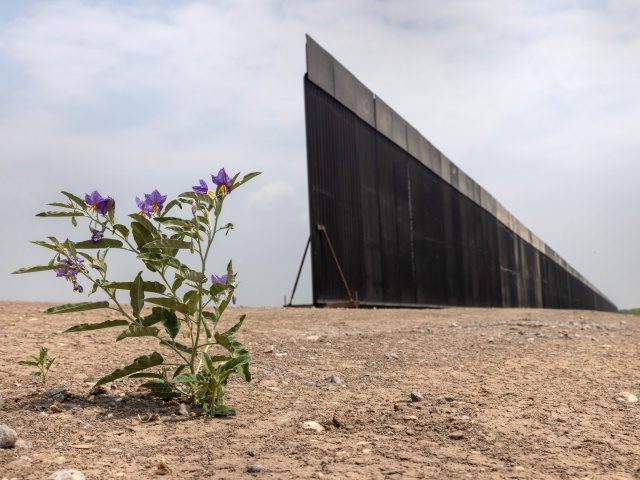The Biden White House is celebrating the fact that a bipartisan “infrastructure deal” passed the first procedural hurdle in the Senate.
Biden and the Republicans who shaped the deal are crowing about what it is in it — though they had yet to provide the text of the bill they are debating and voting on — but what is more interesting is what is likely to be excluded from it: a border wall, the Keystone XL pipeline, water reservoirs, existing nuclear power plants, and the expansion of safe fracking.
Republicans who sign onto this bill — less than 10% of which will fund “roads and bridges,” by the administration’s own admission — are opening the door for Democrats to ram through spending plans that have nothing to do with infrastructure.
They are also approving the Biden administration’s decision to shut down existing parts of our nation’s infrastructure for purely ideological reasons, simply to appease radical environmental activists and amnesty activists.
More on what’s missing:
1. Border Wall. As hundreds of thousands of migrants continue to pour across our southern border — many infected with COVID-19, and many coming from far-flung regions of the world, beyond Central America — the Biden administration canceled President Donald Trump’s border wall, which was under construction and would have greatly enhanced border security. The cost of completing the wall is minuscule next to the size of the overall infrastructure bill, but it is excluded.
2. Keystone XL. Biden ended the construction of the pipeline from Canada to the U.S., which even the administration admits is the safest way to transport oil from Alberta’s oil sands — oil that will now make its way to the U.S. by truck and rail. The president cited climate change as the reason to kill the project — and with it, thousands of the “good, paying union jobs” he always promises. He then went on to approve Russia’s Nord Stream 2 pipeline to Germany, reversing U.S. policy.
3. Water reservoirs. The White House “fact sheet” says the deal will fund “Western water infrastructure.” But it says nothing about new water storage, which residents in states like California have demanded for decades. It talks instead about projects to help “people of color” mitigate “flooding and other climate change-related weather events.” (There is no clear scientific link yet between precipitation, flooding, and climate change.) The plan does not mention desalinization, either.
4. Existing nuclear power plants. The U.S. continues to mothball nuclear power plants, which could be maintained — and should be, if those who care most about climate change are serious about generating energy with virtually zero greenhouse gas emissions. Instead, the deal “invests in demonstration projects and research hubs for next generation technologies like advanced nuclear reactors, carbon capture, and clean hydrogen.” There is no actual commitment to build anything nuclear.
5. Fracking. The fracking revolution and the expansion of natural gas have allowed the U.S. to grow its economy while reducing carbon dioxide emissions in recent years. But environmentalists oppose fracking, as they oppose anything to do with fossil fuels. More fracking could help the Biden administration create jobs and provide energy for consumers while meeting climate goals, but the only mention of gas is a proposal to “cap orphaned gas wells,” closing the industry down.
Republicans who negotiated this deal appear to have left key infrastructure priorities out of it. In signing onto such an agreement, they are approving of Biden’s radical reversal of common-sense infrastructure projects, in favor of left-wing ideological goals and unproven technologies that will subsidize and strengthen special interests.
At the very least, the border wall, the pipeline, and water reservoirs should be red lines for Republicans as they weigh the future of this dubious deal.
Joel B. Pollak is Senior Editor-at-Large at Breitbart News and the host of Breitbart News Sunday on Sirius XM Patriot on Sunday evenings from 7 p.m. to 10 p.m. ET (4 p.m. to 7 p.m. PT). He is the author of the recent e-book, Neither Free nor Fair: The 2020 U.S. Presidential Election. His recent book, RED NOVEMBER, tells the story of the 2020 Democratic presidential primary from a conservative perspective. He is a winner of the 2018 Robert Novak Journalism Alumni Fellowship. Follow him on Twitter at @joelpollak.

COMMENTS
Please let us know if you're having issues with commenting.